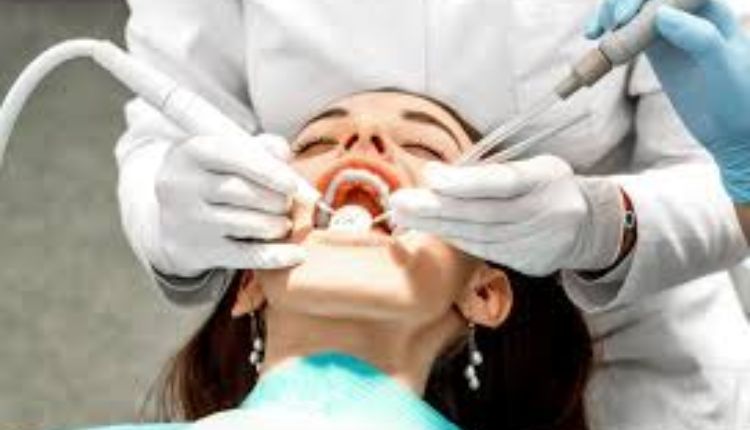When it comes to achieving the perfect smile, the options available in cosmetic dentistry cater to a range of needs and preferences. But not all treatments are created equal. Some provide temporary fixes, while others offer permanent enhancements. Knowing when each is appropriate can save time, money, and ensure your smile reflects your goals.
If you’re currently weighing your options, here’s a comprehensive look into temporary fixes and permanent enhancements, along with their benefits and considerations.
1. Teeth Whitening: A Temporary Bright Fix
Teeth whitening is one of the most popular temporary fixes for achieving a brighter, healthier-looking smile. Using bleaching agents, this procedure lightens discolored teeth caused by coffee, wine, smoking, or aging.
Pros of Teeth Whitening
- Quick Results: You can achieve a whiter smile within one or two sessions.
- Affordable: Compared to other treatments, teeth whitening is budget-friendly.
- Non-Invasive: No changes to your physical teeth are required.
Cons of Teeth Whitening
- Short-Term Effects: Results typically last a few months to a year, depending on diet and oral hygiene.
- Sensitivity: Some may experience temporary sensitivity post-treatment.
Who Should Consider It?
Teeth whitening is ideal for special occasions, such as weddings, or for anyone seeking an affordable, fast enhancement.
2. Veneers vs Dental Bonding
These two treatments fall under different ends of the spectrum between temporary and permanent. Veneers serve as a long-term solution, while dental bonding is more temporary but cost-effective.
Veneers as a Permanent Fix
Veneers are thin shells of porcelain adhered to the fronts of teeth, addressing discoloration, spacing, or cracks.
Pros:
- Long-lasting with proper maintenance (10+ years).
- Mimic the look and feel of natural teeth.
Cons:
- Cost is significantly higher compared to bonding.
- Permanently alters your teeth by removing enamel.
Dental Bonding for Temporary Fixes
Dental bonding involves the application of tooth-colored resin to correct small imperfections such as chips or gaps.
Pros:
- Affordable and quick solution, completed in one visit.
- Reversible with no permanent tooth alteration.
Cons:
- The resin can stain and typically lasts 5–7 years.
- Less durable compared to veneers, often requiring touch-ups.
Choosing Between the Two
If you value longevity, veneers are a worthwhile investment. However, if you need a short-term fix on a smaller budget, dental bonding delivers effective results.
3. Invisalign vs Traditional Orthodontics
Correcting misaligned teeth can significantly enhance both aesthetics and functionality. Invisalign offers a temporary, less invasive approach, while traditional metal braces provide permanent alignment solutions.
Invisalign as a Short-Term Approach
Clear aligners like Invisalign are discreet and work effectively for moderate misalignment.
Pros:
- Virtually invisible, suitable for teens and adults.
- Removable for eating and cleaning.
Cons:
- Requires discipline to wear for 20–22 hours daily.
- May not address severe orthodontic issues.
Traditional Metal Braces as Permanent Alignment
Metal braces may lack the subtlety of Invisalign but are effective for severe alignment cases.
Pros:
- Effective for complex alignment problems and jaw corrections.
- Permanent results following completion.
Cons:
- Visibility and a less adaptable diet.
- Lengthier treatment duration, often 18–24 months.
Factor to Consider
If aesthetics and convenience matter, choose Invisalign. For significant dental corrections, traditional braces may be unavoidable.
4. Dental Implants: The Permanent Enhancement
When it comes to replacing missing teeth, dental implants are unrivaled in their ability to provide a permanent and natural-looking solution. Unlike dental bridges or dentures, implants are surgically placed into the jawbone, mimicking the function of natural teeth.
Benefits of Dental Implants:
- Durability: Implants can last a lifetime with proper care.
- Stability: Unlike dentures, implants won’t shift or slip.
- Bone Preservation: By integrating into the jaw, they prevent bone loss associated with missing teeth.
Considerations:
- Cost: Implants represent a significant financial investment.
- Surgical Procedure: The process requires time for healing after implantation.
For those seeking long-term solutions to missing teeth, dental implants in Pittsburgh offer unparalleled durability and aesthetics.
Finding the Right Approach
Every smile is unique, and understanding the balance between temporary cosmetic fixes and lasting enhancements is key to making the right decision. Temporary solutions like whitening, bonding, and Invisalign can provide rapid improvements, while permanent options such as veneers, traditional braces, and dental implants create a foundation for long-term oral health and aesthetics.
Ultimately, the choice depends on your goals, budget, and the level of transformation you’re seeking. Consult a trusted dentist to explore the most suitable options for your needs.

